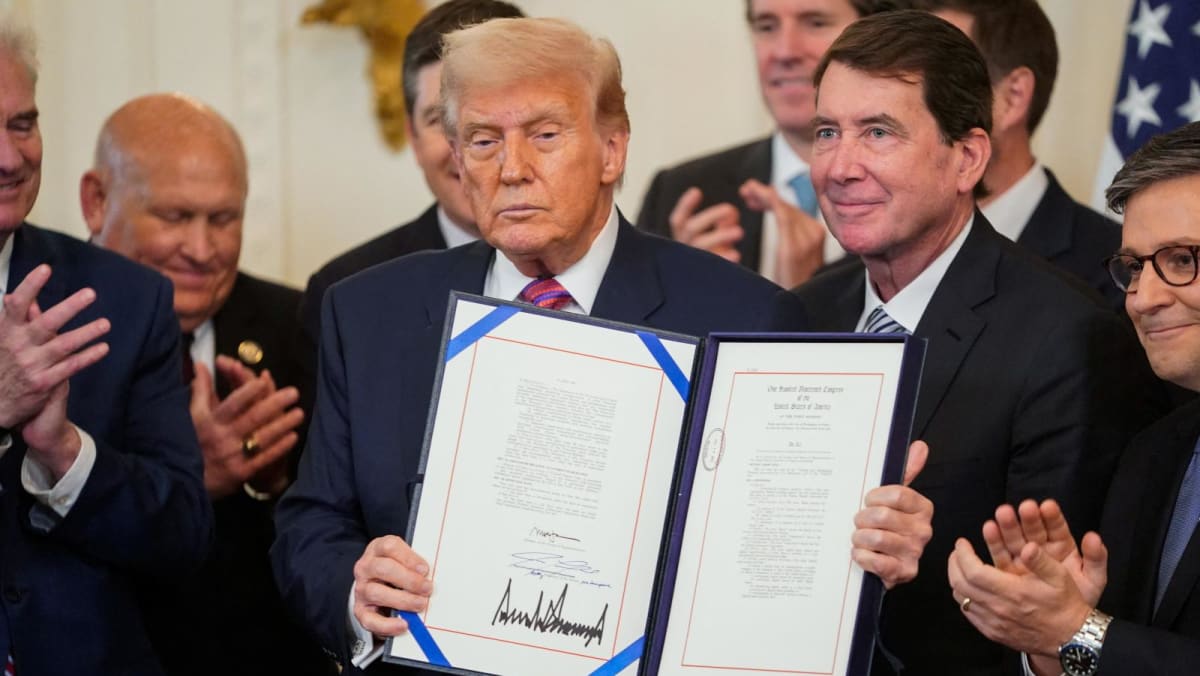Trump Signs US Stablecoin Law, Boosting Crypto Mainstream Adoption

Major Milestone for Cryptocurrency: U.S. Enacts First Stablecoin Regulation
Introduction of the GENIUS Act
On July 18, President Donald Trump officially enacted the GENIUS Act, marking a pivotal moment in the regulation of stablecoins in the United States. This legislation represents a significant step toward establishing a formal framework for cryptocurrencies, aiming to enhance their legitimacy and encourage wider adoption.
Key Provisions of the New Law
The GENIUS Act introduces comprehensive federal guidelines for stablecoins, which are digital currencies intended to maintain a stable value, often linked to the U.S. dollar. The bill garnered substantial bipartisan support, passing the House with a vote of 308 to 122, reflecting backing from a majority of Republicans and nearly half of the Democratic representatives.
During the signing ceremony, attended by various leaders from the cryptocurrency industry, Trump expressed his appreciation for the efforts of those in the sector, stating, “This signing is a massive validation of your hard work and pioneering spirit.”
Under the new regulations, issuers of stablecoins are mandated to ensure their coins are fully backed by liquid assets, such as U.S. dollars and short-term Treasury bills. Additionally, these issuers must publicly disclose the details of their reserves on a monthly basis.
Implications for the Cryptocurrency Market
The introduction of this law is viewed as a substantial win for advocates of cryptocurrency, who have long sought a clear regulatory environment. The legislation aims to provide stability for the industry, foster innovation, and attract traditional financial institutions and users to the crypto space.
According to estimates from Standard Chartered, the stablecoin market, currently valued at over $260 billion, could potentially reach $2 trillion by 2028. Proponents of the law believe it will enhance the credibility of stablecoins, making them more appealing for use by banks, merchants, and consumers for immediate transactions. Companies like Circle and Ripple are already seeking banking licenses to facilitate quicker, cost-effective settlements and boost consumer trust.
Critiques and Concerns
Despite the positive reception from many in the industry, some critics argue that the new legislation has notable shortcomings. Democratic lawmakers and consumer advocacy groups have raised concerns about the absence of robust anti-money laundering measures and the lack of restrictions on major tech companies or foreign entities from launching their own stablecoins. This has led to worries regarding market monopolization and the adequacy of regulatory oversight.
The passage of the GENIUS Act follows a significant lobbying effort by the cryptocurrency sector, which invested over $245 million in the 2024 election cycle to support candidates favorable to crypto interests, including Trump, as reported by the Federal Election Commission.
Conclusion
The enactment of the GENIUS Act signifies a transformative moment for the cryptocurrency landscape in the U.S., providing a regulatory framework that could pave the way for future growth and innovation in the sector. As the market evolves, ongoing discussions about regulatory measures will likely continue to shape the future of stablecoins and the broader cryptocurrency ecosystem.







